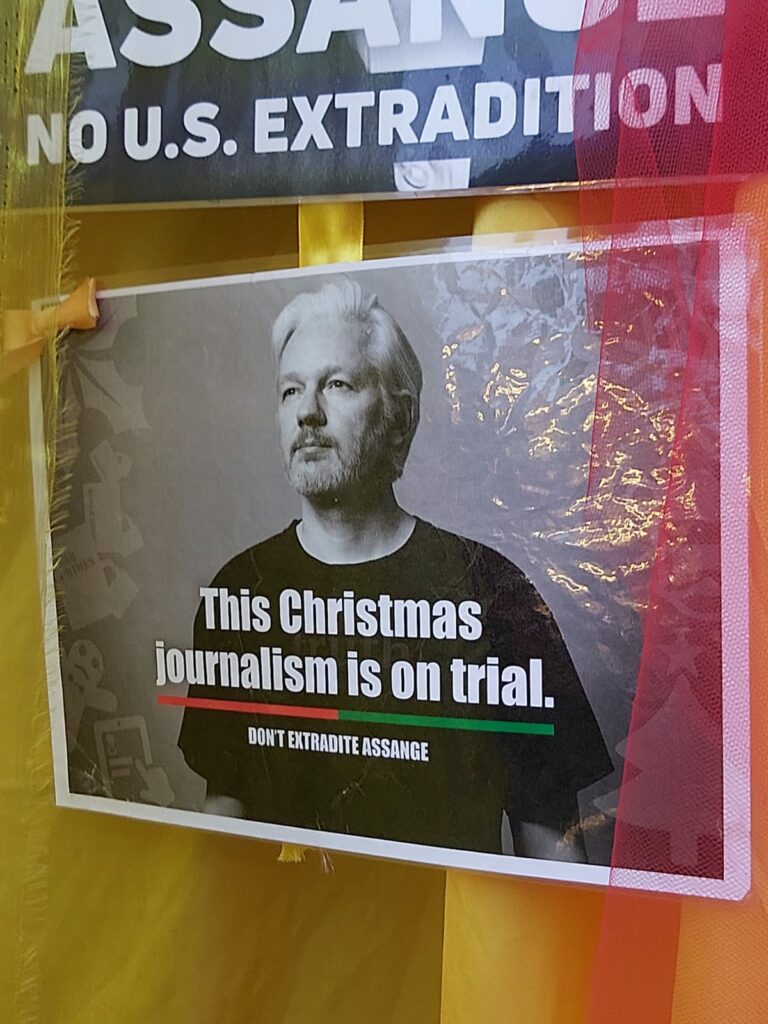President Joe Biden is pressing ahead with a controversial criminal case against Julian Assange, the founder of the whistleblowing website WikiLeaks. Assange has been languishing in Britain’s maximum-security Belmarsh prison for nearly four years while he appeals his extradition to the United States, where he could be sentenced to 175 years in a maximum-security prison on charges of espionage and hacking. Meanwhile, the US government’s criminal prosecution of Assange faces growing criticism at home and has been seen as a threat to press freedom. This month, an unexpected development occurred that could have far-reaching implications for the case: two individuals have asked the US Department of Justice to prosecute them as well. John Young, founder of Cryptome.org – a website similar to WikiLeaks – and Daniel Ellsberg – the legendary whistleblower who leaked the Pentagon Papers – have asked to be charged with publishing and preserving the same documents that Julian Assange has been charged with leaking.
In 1971, Dan Ellsberg gave the documents known as the “Pentagon Papers” to several newspapers, including The New York Times and The Washington Post. These documents revealed the secret history of the US war in Vietnam. The release of this secret information sent shockwaves throughout the country and further weakened the American public’s support for the Vietnam War. The president at the time, Richard Nixon, was enraged and orchestrated a criminal campaign to destroy Ellsberg and block the release of the documents. Nixon failed in both attempts and the case against Ellsberg was dismissed.
Today, Dan Ellsberg, fully lucid at 91, believes that there is a clear parallel between his case and that of Julian Assange and that the US government’s prosecution of the WikiLeaks founder is as invalid as the one he had to go through at the time.
In an interview with Democracy Now! this week, Ellsberg said: “Assange, like me, was illegally surveilled. In his case, even the conversations of his lawyers and doctors were monitored. There was talk of kidnapping, killing or poisoning [Assange], similar to what happened in my case on May 3, 1973, when a dozen CIA agents were sent from Miami by President Nixon with the order to ‘totally’ incapacitate Daniel Ellsberg.
John Young’s website, Cryptome.org, meanwhile, published the same set of diplomatic documents known as “Cablegate” days before WikiLeaks, and the material is still available on the site. Young, who turns 87 next week, also spoke to Democracy Now! “It’s not clear to me why, if they’ve charged [Assange], they’ve never brought any charges against us. All of us who do similar work with the aim of serving the public and not the government should be doing more than protesting. We need to make more noise, take more legal action and publish more information [about it]. That is our obligation as citizens. The national security authorities are completely out of control. They are trying to use [Assange’s case] as a threat against everyone else, not just inside the United States but around the world.
Renowned lawyer James Goodale, a leading jurist specialising in the First Amendment of the US Constitution, agrees. While working as general counsel for The New York Times, the then young Goodale fought and won the newspaper’s lawsuit against the Nixon administration over the Pentagon Papers. In a recent article published on the journalism website The Hill, Goodale wrote: “Since [the website] Cryptome published the leaks before Assange did, Assange should have no legal responsibility for such publication”.
Shortly after the Justice Department’s 2019 indictment against Assange was revealed, Goodale told Democracy Now! “If the government is successful in prosecuting Assange, if it goes ahead at all, it will mean that the newsgathering process will have been criminalised.”
The major newspapers that collaborated with WikiLeaks in publishing the leaked documents have belatedly called on the Biden administration to drop the charges against Assange. In a recent joint open letter, the newspapers wrote that:
“Twelve years ago, on 28 November 2010, our five international media outlets, The New York Times, The Guardian, Le Monde, El País and Der Spiegel, published a series of revelations in cooperation with WikiLeaks that made headlines around the world. Cablegate”, a set of 251,000 confidential cables from the US State Department, revealed corruption, diplomatic scandals and espionage matters on an international scale. [We now gather to express our grave concerns about the continuing prosecution of Julian Assange for obtaining and publishing classified materials.
Dan Ellsberg discussed this letter with Democracy Now! “I’m very glad that [the editors of] The New York Times, El País, Le Monde, The Guardian and Der Spiegel, especially the foreign ones, have finally realised that they can be extradited just like Julian. If an Australian, who happened to be in the UK, is extradited for this, any of those publishers could be indicted on exactly the same charges. They finally realised what I have been unsuccessfully telling them for 50 years, ever since the trial against me”.
As the interminable legal battle drags on, Julian Assange’s health is worsening in Belmarsh prison where he is being held in deplorable conditions. Nils Melzer, former UN special rapporteur on torture, said after visiting him in prison: “[Assange is] being subjected to cruel, inhuman and degrading treatment that cumulatively has the same effect as psychological torture”. Julian suffered a minor stroke in October 2021 and then, also in prison, contracted COVID-19.
President Biden should drop the charges against Julian Assange. As the five newspapers concluded in their open letter, “publishing information is not a crime”.










